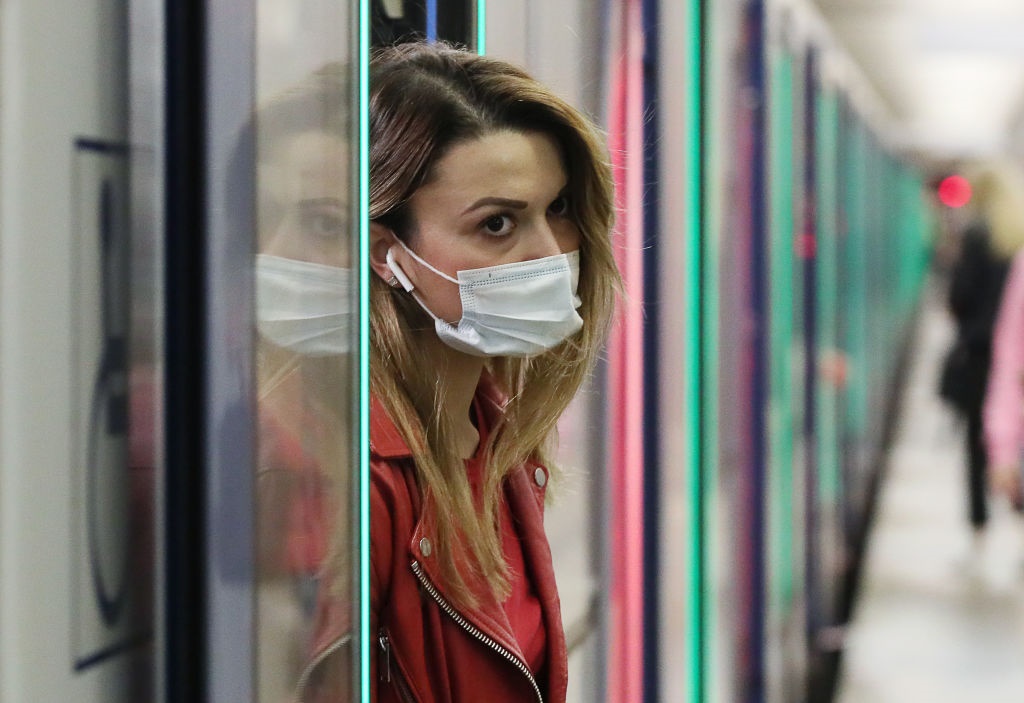
Reuters reports that Malaysian Prime Minister Muhyiddin Yassin said on Monday he would go into quarantine for 14 days after coming into contact with a minister who had tested positive for Covid-19.
The 73-year-old premier said he had been at a meeting on Saturday with religious affairs minister Zulkifli Mohamad Al-Bakri to discuss the country's rising number of coronavirus infections.
Zulkifli tested positive two days later on Monday, the prime minister said. He added that all his own tests so far had come out negative.
Other senior officials at the same meeting included the security minister, the health ministry's director general and the chiefs of the police and defence forces, state news agency Bernama reported. Everyone who attended would be tested, the health ministry said.
The Southeast Asian country has seen a steady climb in coronavirus cases following last month's election in the state of Sabah - the site of an early cluster of cases. Malaysia reported 432 new cases on Monday, a new daily record.
Russia calls for examining US moves "against the WHO"
Reuters reports that Russia called on Monday for an evaluation of the legal and financial repercussions of the Trump administration announcing the US withdrawal from the World Health Organisation (WHO) next July.
Russia's delegation, addressing a two-day meeting of WHO's Executive Board, said: "We need to analyse legal procedures and administrative and financial procedures regarding steps taken by the United States against the WHO."

The United States will not pay some $80 million it owes the WHO and will instead redirect the money to help pay its United Nations bill in New York, a U.S. official said on 2 September.
Lithuanian foreign minister self-isolating after French visit
Reuters reports that Lithuanian Foreign Affairs Minister Linas Linkevicius will self-isolate for a week after contact with members of visiting French President Emmanuel Macron's delegation who later tested positive for the coronavirus.
The minister was present at several events during the 28-29 September visit, spokesperson Rasa Jakilaitiene said. The minister took a coronavirus test that came back negative on Monday afternoon.
The two members of the French delegation who tested positive were resident in Vilnius and not part of the travelling delegation from Paris, who had all tested negative before landing in Lithuania, Macron's office said.
As coronavirus cases rise, Lebanon fears deterioration
AFP reports that Lebanon's caretaker health minister Monday warned novel coronavirus cases were increasing, urging more private hospitals to help prepare for any further deterioration.
The Mediterranean country had kept its numbers relatively low since its first case in February, but the easing up of measures this summer has set infection rates back on the rise.
Covid-19 infections have shot up to 44 482 including 406 deaths since February, and Lebanon on Sunday put 111 villages and towns on lockdown in a bid to stem the pandemic.
As a comparison, official French figures show new coronavirus cases stand above 250 per 100 000 people in Paris per week.
Hassan, who has been caretaker minister since the government resigned in the wake of an 4 August explosion in Beirut, said Lebanon's death rate stood at 1.2 per 100,000 cases of infection.
Nvidia building UK supercomputer to boost Covid-19 research
Reuters reports that tech giant Nvidia said on Monday it is building Britain's most powerful supercomputer, which will use artificial intelligence to help researchers solve pressing medical challenges, including those related to Covid-19.
GSK and AstraZeneca, which are both involved in coronavirus vaccine research, will be two of the first pharmaceutical companies to harness the power of the machine, Nvidia said.

The Cambridge-1 computer, which is expected to come online by the end of the year in Cambridge, east England, will be a NVIDIA DGX SuperPOD system capable of delivering more than 400 petaflops of AI performance, the company said.
That would mean it ranks 29th on the Top 500 list of the world's most powerful supercomputers, it said.
Cambridge is also home to Arm, the British chip designer that Nvidia has agreed to buy from Japan's SoftBank for $40 billion.
Nvidia has previously said it intended to create an AI Center of Excellence in the university city, featuring an Arm-based supercomputer, which will serve as a hub of collaboration for researchers, scientists and startups across the UK.
Paris cafes to shut as Europe confronts second virus wave
AFP reports that Paris' bars and cafes will shut for two weeks as the city and its region were placed on maximum alert Monday, with Europe facing a second wave of the coronavirus pandemic and the hospitalisation of President Donald Trump throwing the US election campaign into a tailspin.
France reported nearly 17 000 new coronavirus cases on Saturday alone, the highest daily number since the country began widespread testing.
The shuttering of bars and cafes - seen by many as the essence of Parisian life - were "braking measures because the epidemic is moving too fast," Paris police chief Didier Lallemant told journalists, adding that restaurants will remain open provided they respect new safety measures.
These will include making sanitising hand gel available at all dining tables, limiting patrons to six a table with at least a metre between seats, and allowing patrons to remove their masks only for eating.
Europe, which has recorded 235 553 deaths, is approaching a caseload of six million out of the more than 35.2 million cases officially diagnosed across the world.
The virus has killed at least 1 037 971 people worldwide according to the latest AFP tally based on official sources.
Britain remains the worst-hit European country, passing its latest milestone of 500 000 confirmed coronavirus infections on Sunday.
Neighbouring Ireland for its part is mulling a nationwide lockdown after a surge of new cases.
